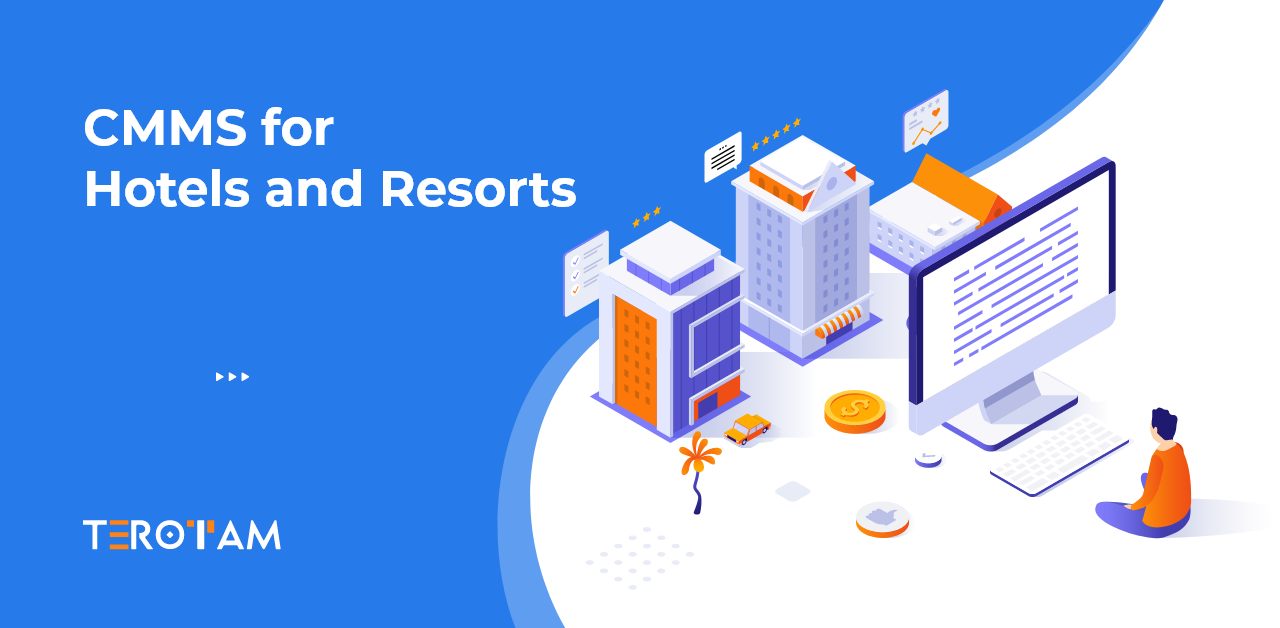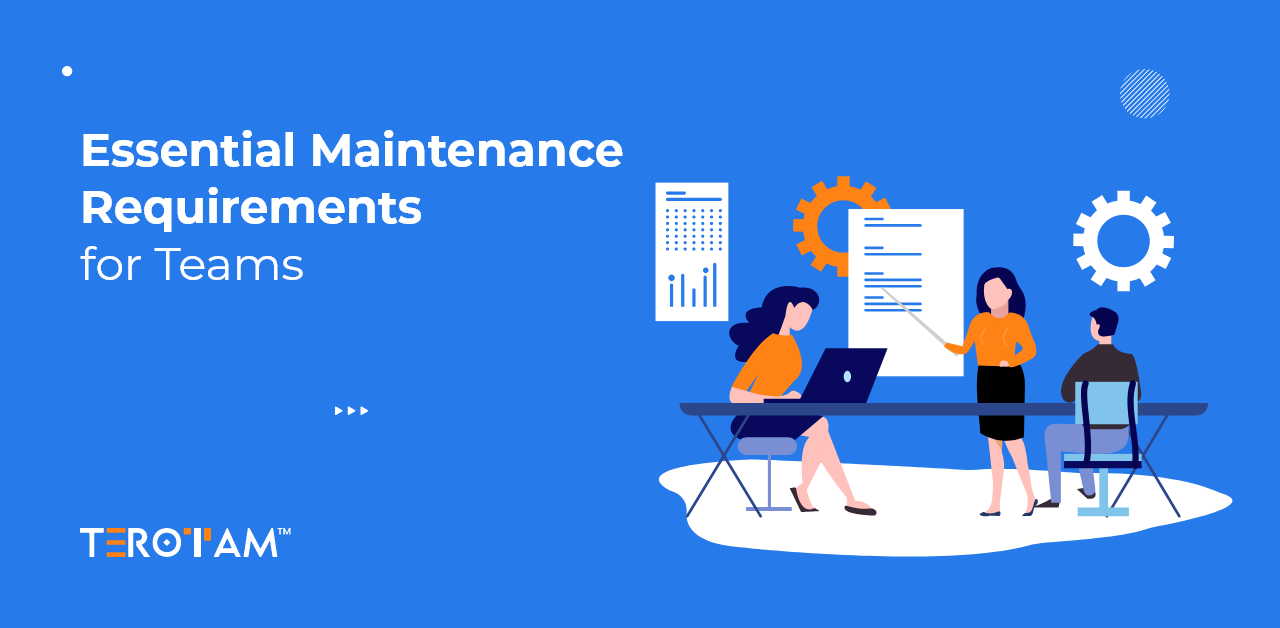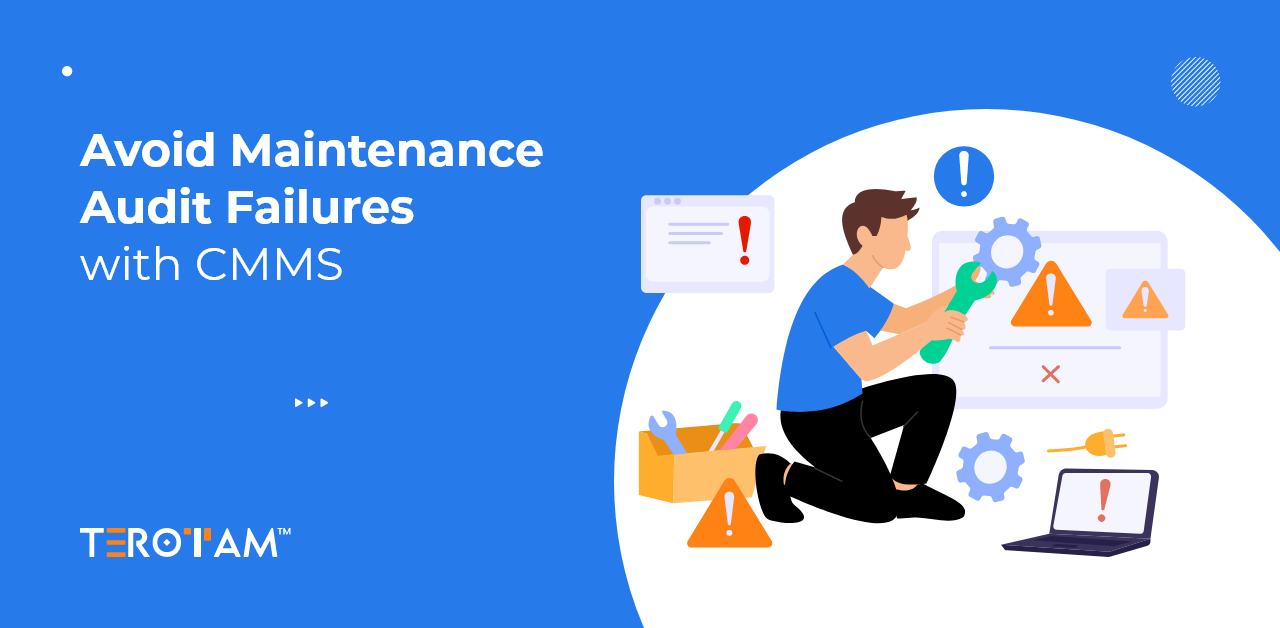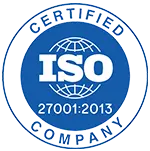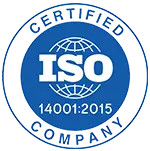Hotels and resorts operate continuously, handling a mix of guest services, housekeeping, and facility management. Keeping everything in top shape—from HVAC systems to kitchen appliances and elevators—requires a structured maintenance approach. Without a proper system, equipment failures and unplanned repairs can lead to service disruptions and increased costs.
This is where CMMS for Hotels and Resorts plays a crucial role. It streamlines maintenance workflows, improves asset management, and ensures smooth operations. In this article, we’ll explore the benefits of implementing CMMS in hospitality and how it enhances efficiency while reducing operational costs.
Challenges in Maintenance Management for Hotels and Resorts
Managing maintenance in hotels and resorts is a demanding task. With multiple departments relying on various assets— HVAC systems, plumbing, and kitchen equipment to any outdoor equipments or premises—any failure can impact guest satisfaction and operational efficiency. Unexpected breakdowns lead to costly emergency repairs, while manual tracking of maintenance requests often causes delays. Without a structured system, staying on top of routine servicing and compliance requirements becomes a challenge.
Here are some common maintenance issues hotels and resorts face:
- Frequent Equipment Breakdowns – HVAC, elevators, and plumbing systems require continuous monitoring to prevent sudden failures.
- High Maintenance Costs – Emergency repairs and unexpected replacements drive up expenses.
- Manual Work Order Management – Paper-based tracking often leads to delays and miscommunication.
- Regulatory Compliance – Fire safety, hygiene standards, and equipment inspections require strict adherence to regulations.
- Guest Satisfaction Risks – Slow response to maintenance issues can negatively impact guest experiences.
A CMMS for Hotels and Resorts helps address these challenges by automating maintenance tasks, tracking asset performance, and streamlining work orders.
How does CMMS for Hotels and Resorts Strengthen its Maintenance Operations?

Hotels and resorts rely on a vast network of mechanical, electrical, and plumbing systems that require continuous monitoring and upkeep. Unscheduled equipment failures can disrupt critical operations, affecting guest comfort and overall service quality. Traditional maintenance methods often struggle with delayed response times, inefficient work order tracking, and unoptimized asset utilization.
A CMMS for Hotels and Resorts integrates real-time monitoring, automated scheduling, and data-driven maintenance strategies to improve system reliability and operational efficiency.
The following sections highlight the key ways a CMMS enhances maintenance management in the hospitality sector.
1. Preventing Downtime and Service Interruptions
Unexpected equipment failures can lead to service delays, guest complaints, and expensive last-minute repairs. Hotels and resorts rely on various systems, such as HVAC, plumbing, and electrical grids, to operate efficiently. A CMMS ensures that maintenance teams follow a preventive approach, reducing the risk of breakdowns and avoiding unplanned disruptions.
- Tracks asset performance in real-time to detect early warning signs
- Automates preventive maintenance schedules to keep equipment in top condition
- Reduces emergency repair costs by identifying potential issues before they escalate
2. Improving Guest Experience with Quick Resolutions

A seamless guest experience is crucial in the hospitality industry. Guests expect fully functional rooms, smooth elevator operations, and uninterrupted heating or cooling. Any maintenance delay can affect their comfort and lead to negative reviews. A CMMS helps hotels respond to issues faster by ensuring maintenance teams receive real-time notifications and prioritize urgent tasks.
- Automates work order assignments to the right technician for faster response
- Sends real-time alerts when critical repairs are needed, reducing resolution time
3. Efficient Work Order Management
Hotels and resorts deal with multiple maintenance requests daily, making manual tracking inefficient. Miscommunication between departments and delays in assigning tasks can lead to prolonged service disruptions. A CMMS streamlines work order management by centralizing requests, assigning tasks automatically, and tracking completion times to ensure smooth operations.
- Centralizes all maintenance requests in one digital platform for easy access
- Assigns tasks based on priority, availability, and technician expertise
- Tracks job completion times to ensure quick turnaround and accountability
- Reduces communication gaps between front desk, housekeeping, and maintenance teams
4. Lowering Maintenance Costs

Reactive maintenance leads to unexpected expenses, whether from emergency repairs, last-minute part replacements, or equipment breakdowns. A CMMS allows hotels to transition to a proactive maintenance model, helping them plan repairs in advance, avoid costly breakdowns, and manage budgets effectively.
- Helps forecast maintenance expenses by tracking service history and costs
- Reduces the need for emergency repairs by addressing minor issues early
- Extends the lifespan of equipment, reducing replacement costs over time
5. Ensuring Compliance with Safety Regulations
Hotels and resorts must meet strict safety, health, and operational regulations. From fire safety checks to hygiene standards, missing an inspection can result in fines and legal issues. A CMMS helps track compliance-related tasks, ensuring inspections and maintenance activities are completed on time and properly documented.
- Schedules routine safety inspections and ensures regulatory requirements are met
- Maintains digital records of completed inspections for easy audit access
- Generates compliance reports to streamline regulatory checks and prevent penalties
- Minimizes legal risks by ensuring timely servicing of fire safety and emergency systems
6. Managing Spare Parts and Inventory
A lack of essential spare parts can delay repairs and disrupt operations, while excessive inventory leads to unnecessary costs. A CMMS helps hotels and resorts track spare parts efficiently, ensuring the right stock is available when needed while avoiding over-purchasing.
- Tracks inventory levels in real time to prevent shortages or excess stock
- Sends alerts when spare parts run low, allowing timely restocking
- Reduces unnecessary purchases by optimizing inventory planning
7. Increasing Staff Productivity
Managing maintenance manually slows down operations and increases administrative workload. A CMMS improves staff efficiency by automating scheduling, providing mobile access to work orders, and reducing paperwork. Maintenance teams can focus on completing tasks instead of handling manual logs.
- Provides mobile access to maintenance requests for on-the-go task management
- Reduces time spent on paperwork by digitizing work orders and reports
- Allows real-time status updates, helping teams track ongoing and completed tasks
8. Maximizing Asset Lifespan
Hotels invest heavily in assets like HVAC systems, kitchen appliances, and plumbing networks. Without regular maintenance, these assets deteriorate faster, leading to expensive replacements. A CMMS ensures timely servicing, keeping equipment in optimal condition for longer use.
- Tracks asset performance and usage trends to schedule necessary upkeep
- Schedules servicing based on real-time data insights, reducing wear and tear
9. Leveraging Data for Smarter Decisions
A CMMS collects valuable data on maintenance activities, costs, and equipment performance. Hotel management can analyze reports to optimize asset usage, allocate budgets more effectively, and improve long-term maintenance strategies.
- Generates reports on maintenance costs, helping with financial planning
- Identifies patterns in equipment failures, allowing better decision-making
- Helps forecast repair needs, reducing unplanned service disruptions
- Improves budgeting for maintenance expenses, ensuring efficient resource allocation
- Reduces unnecessary equipment replacements by tracking asset conditions accurately
10. Supporting Sustainability Efforts

Hotels and resorts are increasingly focused on energy efficiency and sustainable practices. A CMMS helps track energy consumption, detect inefficiencies, and ensure that systems are maintained in an eco-friendly manner. By reducing waste and optimizing resource usage, hotels can lower operational costs while supporting sustainability goals.
- Monitors energy usage in heating, cooling, and electrical systems to detect inefficiencies
- Helps identify high-energy-consuming equipment that needs optimization or replacement
A CMMS for Hotels and Resorts improves maintenance efficiency and gear ups the guest experiences, reduces costs, and ensures compliance with safety standards. With a proactive approach to asset management, hotels can maintain high service standards while keeping operational disruptions to a minimum.
Ending note
Ensuring seamless operations in a hotel or resort requires a maintenance strategy that keeps everything running efficiently behind the scenes. A CMMS for Hotels and Resorts eliminates guesswork, minimizes downtime, and enhances overall asset performance, creating a smooth experience for both guests and staff. Investing in the right system means fewer disruptions, lower costs, and a more efficient workflow.
Discover how a CMMS can redefine your maintenance management reach out to contact@terotam.com today.


